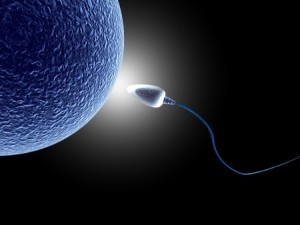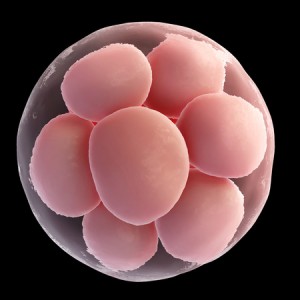
About drjohnzhang
View all posts by drjohnzhang
2017’s Candidates for Conventional IVF
The most common treatment for infertility is Conventional IVF (in vitro fertilization). Thanks to innovative IVF ancillary technologies – such as ICSI and PGD/PGS/NGS – Conventional IVF is very successful for the right candidate.
 Candidates for Conventional IVF
Candidates for Conventional IVF
Typical candidates for Conventional IVF:
- Women under 35 who can produce multiple quality eggs
- Women having blocked or damaged Fallopian tubes
- Women who are facing cancer treatment and have little time to cryopreserve their eggs before chemo or radiation treatment
- Couples diagnosed with male factor infertility
Conventional IVF is recommended for women who have failed to achieve a pregnancy after undergoing a series of IUI.
Varied IVF protocols available today:
· Mini-IVF™Read more: 2017’s Candidates for Conventional IVF
Fertility Doctor Treating Secondary Infertility
While it is mainstream for a couple to seek out the help of a fertility doctor after they have tried unsuccessfully to get pregnant for a year, a typical case of secondary infertility can go undiagnosed. Primary infertility is diagnosed when a couple fails to conceive after one year of regular, unprotected sex. For women over 35, this time period is shortened to six months. Secondary infertility is diagnosed when a couple has been successful in conceiving a child, but then is unable to conceive more children.
Dr. John Zhang is renowned for successfully treating couples suffering from secondary infertility. Older men and women considered poor responders are turned down by other fertility clinics offering In Vitro Fertilization (IVF).
Dr. John Zhang welcomes patients representing a challenge, regardless of their potential adverse affect on his pregnancy success rates. The Doctor completed his clinical training at NYU and holds a PhD in IVF from Cambridge. With over two decades of experience in Reproductive Endocrinology, the Doctor is a leading authority performing a vast array of IVF methods.
- Conventional IVF – large dosages of fertility medication are administered to produce 10+ egg follicles for fertilization in vitro
- Mini-IVF™ – minimal dosages of fertility medications are administered to produce between 3 and 5 eggs for fertilization in vitro
- Natural Cycle IVF – no fertility medications are administered and one good natural egg is harvested for fertilization in vitro
How Assisted Hatching Enhances IVF Treatment

 The cutting-edge technique of Assisted Hatching is used during the IVF culturing process to enhance an embryo’s chances of implantation. Why is this IVF ancillary procedure amazing? Assisted Hatching helps couples having a poor prognosis finally achieve a pregnancy through IVF. Typically, these couples develop embryos lacking the capacity to erupt naturally from their shells and attach to the woman’s endometrial lining.
The cutting-edge technique of Assisted Hatching is used during the IVF culturing process to enhance an embryo’s chances of implantation. Why is this IVF ancillary procedure amazing? Assisted Hatching helps couples having a poor prognosis finally achieve a pregnancy through IVF. Typically, these couples develop embryos lacking the capacity to erupt naturally from their shells and attach to the woman’s endometrial lining.
- Assisted Hatching is an ancillary procedure used in conjunction with IVF process
- Assisted Hatching has improved IVF pregnancy success rates in patients having a poor prognosis
Bottom Line: A better chance for a successful IVF pregnancy even for those couples diagnosed as poor responders or difficult cases.Read more: How Assisted Hatching Enhances IVF Treatment
How to Plan Ahead for Travel During IVF Treatment
 Fertility medication is an integral and vital part of In Vitro Fertilization (IVF) treatment. Medication is used to delay the start of a cycle, spur the growth of eggs, and trigger ovulation. In order for an IVF treatment cycle to have the best chance at pregnancy success, it is important that all prescribed fertility medication be taken at the time and dose indicated by your fertility care tam. Failing to do so can result in the IVF cycle being unsuccessful.
Fertility medication is an integral and vital part of In Vitro Fertilization (IVF) treatment. Medication is used to delay the start of a cycle, spur the growth of eggs, and trigger ovulation. In order for an IVF treatment cycle to have the best chance at pregnancy success, it is important that all prescribed fertility medication be taken at the time and dose indicated by your fertility care tam. Failing to do so can result in the IVF cycle being unsuccessful.
Administering IVF Medications While Traveling
Finding the time and place to administer fertility medication can take some maneuvering and coordination.
This is true regardless of your chosen IVF protocol – traditional or holistic.
· Mini IVF
· Natural IVFRead more: How to Plan Ahead for Travel During IVF Treatment
How High Resolution Sperm Selection (HRSS) Treats Male-Factor Infertility
 Any and all negative influence of male-factor infertility must be negated to ensure successful embryo development. Why does this matter? HRSS technology is helping embryologists see, identify, and choose only high quality sperm cells for fertilization of an egg in vitro. With HRSS technology, embryologists are able to better visualize sperm for Intracytoplasmic Sperm Injection (ICSI) administration. Bottom line: Couples who have multiple failed IVF cycles are primary benefactors of HRSS.
Any and all negative influence of male-factor infertility must be negated to ensure successful embryo development. Why does this matter? HRSS technology is helping embryologists see, identify, and choose only high quality sperm cells for fertilization of an egg in vitro. With HRSS technology, embryologists are able to better visualize sperm for Intracytoplasmic Sperm Injection (ICSI) administration. Bottom line: Couples who have multiple failed IVF cycles are primary benefactors of HRSS.
HRSS Technology Overview
New Hope Fertility Center NYC is one of only a few fertility treatment providers to offer HRSS technology. Look: HRSS optimizes the sperm selection process for improving the success of ICSI.
At 6000 x magnification – using Differential Interference Contrast (DIC) microscopy – it is possible for embryologists to see finer morphological details of sperm. Using conventional 500 x magnification, these details would go unnoticed.
The best part? By viewing sperm cells at 6000 x magnification, lab technicians can identify quality sperm cells that are optimum for fertilization of a healthy egg.
Once optimum sperm cells have been identified, a two-pronged process takes place.
- Selection
- Injection
Once the quality sperm cells are selected and separated using HRSS, they are injected into the egg for fertilization. Each egg receives a single sperm injection.
- Reduces chances of a negative impact a sperm can have on a perfectly healthy egg
- Removes any negative influence that male-factor infertility may have on successful embryo development
- Increase the chances of a viable pregnancy
Read more: How High Resolution Sperm Selection (HRSS) Treats Male-Factor Infertility
How In Vitro Maturation (IVM) Increases IVF Success Rates
 IVM or IVF/M – egg maturation in vitro – is a revolutionary method of Assisted Reproductive Technology (ART) helping to increase a woman’s chances of using at least some of her immature eggs for fertilization. The best part? IVM is an innovative ART technique that surgically retrieves a woman’s eggs while they are still in an immature stage. Look: A woman’s eggs can be matured in a controlled laboratory setting – in vitro – through IVF/M.
IVM or IVF/M – egg maturation in vitro – is a revolutionary method of Assisted Reproductive Technology (ART) helping to increase a woman’s chances of using at least some of her immature eggs for fertilization. The best part? IVM is an innovative ART technique that surgically retrieves a woman’s eggs while they are still in an immature stage. Look: A woman’s eggs can be matured in a controlled laboratory setting – in vitro – through IVF/M.
IVF/M Overview
After the woman’s immature eggs are surgically retrieved, they are placed in a petri dish containing a maturation medium for 24 to 48 hours in New Hope Fertility NYC’s state-of-the-art IVF lab. That’s not all. The retrieved eggs are carefully monitored as they fully mature outside of the woman’s body. Then, each individual egg is injected with a single sperm in a fertilization technique known as Intracytoplasmic Sperm Injection (ICSI). The resulting embryos are cultured for several more days until they have developed into a viable stage for transfer. Why does this matter? Only the highest quality embryos are selected for fresh IVF transfer or cryopreservation.
IVF/M Candidates
The best candidates for IVF/M:
- Women diagnosed with Polycystic Ovarian Syndrome (PCOS)
- Women at risk for Ovarian Hyperstimulation Syndrome (OHSS)
- Cancer patients who may be sensitive to hormone therapy
- Young women able to produce high numbers of egg follicles (10 to 15+) through fertility drug stimulation
- Young women who have an acceptable AMH level
- Women under 35 having an antral follicle count of 10 or more
- Women who are at a healthy BMI – not obese
Read more: How In Vitro Maturation (IVM) Increases IVF Success Rates
Know Your Infertility Treatment Options
 To get the best outcome from you infertility treatment, the approach to care must be personalized. Every patient has different medical needs and personal desires when it comes to infertility treatment protocols. Only customized infertility treatment is patient-friendly, cost-effective, and successful.
To get the best outcome from you infertility treatment, the approach to care must be personalized. Every patient has different medical needs and personal desires when it comes to infertility treatment protocols. Only customized infertility treatment is patient-friendly, cost-effective, and successful.
Infertility Treatment Options
Dr. Zhang will accurately diagnose the root cause of your infertility before designing a customized treatment plan to improve your chances of getting pregnant.
Intrauterine Insemination (IUI)
Intrauterine Insemination (IUI) is the placement of a concentrated amount of motile sperm specimen directly into a woman’s uterus. The goal is to increase the number of sperm reaching the woman’s fallopian tubes to facilitate egg fertilization. IUI is performed in the doctor’s office and requires no anesthesia – similar to a Pap smear. IUI treatment is perfectly timed with ovulation whether or not fertility medications are used.
In Vitro Fertilization (IVF)
In Vitro Fertilization (IVF) is recommended for women who have failed to achieve a pregnancy after undergoing a series of less complicated medical procedures, such as timed intercourse and IUI.
There are varied traditional and holistic protocols of IVF offered by pioneering IVF Dr. Zhang.
When Your Endometrial Lining is Constantly Thin
 If the diagnosis of a constantly thin endometrial lining has been hindering your chances of conceiving, please know there is hope. An accurate diagnosis of why your endometrial lining remains constantly thin is key to overcoming this medical condition. I can’t emphasize enough how a customized In Vitro Fertilization (IVF) treatment protocol can effectively treat your constantly thin endometrial lining and improve your chances of pregnancy.
If the diagnosis of a constantly thin endometrial lining has been hindering your chances of conceiving, please know there is hope. An accurate diagnosis of why your endometrial lining remains constantly thin is key to overcoming this medical condition. I can’t emphasize enough how a customized In Vitro Fertilization (IVF) treatment protocol can effectively treat your constantly thin endometrial lining and improve your chances of pregnancy.
A Thin Endometrial Lining – What Does This Mean?
During an IVF cycle, your endometrial lining is routinely measured for thickness through vaginal ultrasounds. An endometrial thickness of 8 mm or greater is considered adequate for successful embryo implantation. Poor endometrial lining thickness is commonly the root cause of infertility for women having multiple unexplained IVF failures. A thin endometrial lining is also routinely the diagnosis for women experiencing recurrent miscarriages.
Why is this important?
Women having a history of using birth control pills for 10 years or longer are prone to having a thin endometrial lining. The use of Clomid while undergoing multiple cycles of Intrauterine Insemination (IUI) in a row may contribute to a constantly thin endometrial lining. Pregnancy and live birth success rates rise substantially with increased endometrial thickness – independent of patient age and embryo quality factors.
- Embryo implantation rates are highest when the endometrial lining has a thickness of 9 mm or greater
- A constantly thin endometrial lining – 7 mm or less – is cause for concern of a potential failed IVF cycle
- Less than 5 mm – there is almost no chance of a pregnancy
How Egg Freezing is Trending in 2017
 Today’s woman can postpone motherhood past her prime childbearing years through the medical marvel of egg freezing – oocyte cryopreservation – via IVF. Pregnancy success rates using a woman’s egg that has been cryopreserved are comparable to success rates of a fresh egg. Egg freezing is a phenomenal technology available for today’s women to preserve their fertility for tomorrow. These women want to ensure they have the ability to be biologically connected to their children in the future.
Today’s woman can postpone motherhood past her prime childbearing years through the medical marvel of egg freezing – oocyte cryopreservation – via IVF. Pregnancy success rates using a woman’s egg that has been cryopreserved are comparable to success rates of a fresh egg. Egg freezing is a phenomenal technology available for today’s women to preserve their fertility for tomorrow. These women want to ensure they have the ability to be biologically connected to their children in the future.
Egg Freezing Trends in 2017
The natural aging process has a dramatic effect on the quality of a woman’s eggs. A woman in her prime reproductive years (early 20s and early 30s) has the option of freezing her eggs to preserve her future fertility into her advanced reproductive years (mid-30s and early 40s + beyond):
- Today’s modern women who are focused on their education and career opportunities
- Women whose circumstances in life are not presently conducive to rearing children
- Women who have not be able to find their life partner
- Women who are facing cancer treatment – chemo or radiation – that could damage the quality of their eggs and/or destroy their ovarian function by sending them into premature menopause
- Women who are undergoing IVF and are likely to produce excessive eggs, but have ethical or religious concerns over freezing embryos
How to Become Informed About Egg Donation
 A superior egg donation program helps infertile couples grow their families through In Vitro Fertilization (IVF) technology. New Hope Fertility in NYC founded the 21st century’s most acclaimed egg donation program. Many women donate their eggs at New Hope Fertility in NYC because they want to give the gift of life to other families. Our program has been created for the sole purpose of matching recipient couples with an optimum egg donor. We work closely with donors and recipients to ensure the process is smooth, confidential, and user-friendly.
A superior egg donation program helps infertile couples grow their families through In Vitro Fertilization (IVF) technology. New Hope Fertility in NYC founded the 21st century’s most acclaimed egg donation program. Many women donate their eggs at New Hope Fertility in NYC because they want to give the gift of life to other families. Our program has been created for the sole purpose of matching recipient couples with an optimum egg donor. We work closely with donors and recipients to ensure the process is smooth, confidential, and user-friendly.
Egg Donation Program in NYC
Through New Hope Fertility’s egg donation program, you will be efficiently matched with an egg donor. Our egg donation coordinators carefully match intended parent with egg donors to achieve a successful pregnancy. We help intended parents find egg donors with similarities in ethnicity and physical characteristics.
- For Donor Information
- For Recipients
- About Surrogacy using donor eggs
Egg Donor Qualifications
- Excellent medical and mental health
- Ages 18 to 28
- Local and out-of-state donors welcome

